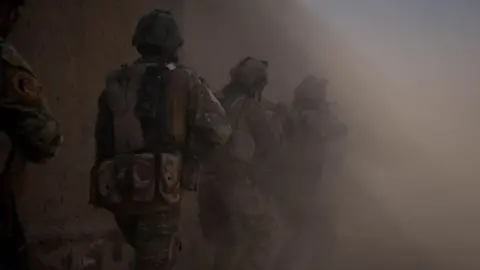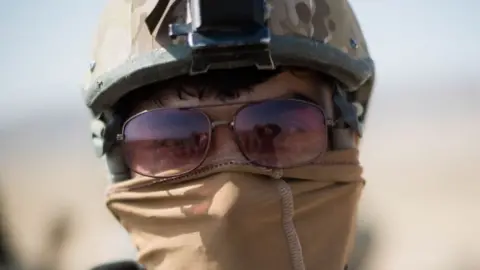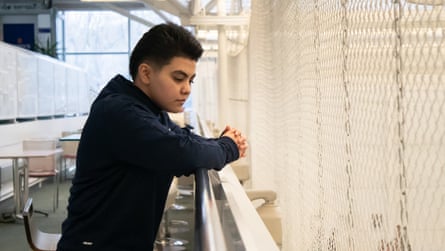By Joe Inwood

Former Afghan special forces who served alongside the British but were denied relocation to the UK will have their cases re-examined, the government says.
Armed Forces Minister James Heappey said ineligible applications with credible claims of links to Afghan specialist units would be reassessed.
The so-called “Triples” were elite units set up, funded and run by the UK.
But hundreds had their relocation claims denied following the Taliban takeover of Afghanistan in 2021.
Campaigners have been fighting for them ever since the Taliban swept into Kabul in August 2021, with one describing the government announcement as “a momentous decision and a life-changing day.”
The Afghan Relocations and Assistance Policy (ARAP) was launched in April 2021 for Afghan citizens who worked for or with the UK government in “exposed or meaningful” roles.
Those eligible may relocate to the UK with a partner, dependent children and additional family members who are also deemed eligible, the scheme says.
Last month, BBC Newsnight revealed that more than 200 former members of the Triples who had fled to Pakistan were facing deportation, and that many of the character references given to them by British soldiers had not been followed up.
In a House of Commons statement, Mr Heappey said a review had found inconsistencies in the application of ARAP criteria and “necessary steps” would be taken to rectify this.
He said a new, independent team within the Ministry of Defence (MoD) would carry out the reassessments, adding the UK “owes a debt of gratitude to these brave individuals” who served for, with or alongside British forces in Afghanistan.
‘Duplicitous or incompetent’
Commando Force 333 and Afghan Territorial Force 444 were said to be the elite of the Afghan military.
They were established by the British during the 20-year operation in the country, working “shoulder-to-shoulder” with UK special forces. They were also paid by the British over many years, according to former senior officers who spoke to BBC Newsnight.
When Kabul fell to the Taliban, the Triples were among the last Afghan units standing, even helping to protect British citizens as they fled the capital.

Some managed to escape the country as part of the chaotic evacuation process, but many did not. They had assumed their long association with the British would mean they would be automatically helped under the ARAP scheme, but hundreds of former Triples have ended up stuck in a process described as “a huge miscarriage of justice”.
One campaigner told the BBC it had been “literally hellish”.
“They were so certain they would be taken care of, but to have to go into hiding and see colleagues murdered and not to have received any response or be rejected, was utterly heartbreaking,” they said.
“We failed in our duty of care to these people. These decisions were unlawful. The MoD knew they were unlawful but have just tried to delay the inevitable. They’ve been duplicitous.”
Gen Sir Richard Barrons, who served in the British Army in Afghanistan for over 12 years, previously described the failure of the UK to relocate these soldiers as “a disgrace, because it reflects that either we’re duplicitous as a nation or incompetent”.
Their plight has been the subject of a long-running campaign, with many high-profile military, legal, political and diplomatic supporters. Despite this, the government had until now resisted calls to re-examine their cases.
Just last month, the armed forces minister told the MPs that identification was an issue. Mr Heappey said it was hard to “verify the service of those who just served in the unit rather than explicitly alongside UK personnel”.
That was met with a furious response by former soldiers, who told the BBC they had tried to give references but been ignored.
‘Not all will make it’
While Thursday’s news has been welcomed by campaigners, supporters of the Triples say the delay has cost lives. The exact number is not known, but there are extensive reports of former Triples being attacked, tortured and killed by the Taliban.
“We have lost a number already, not all of them will make it, but for those who do this is the end of two-and-a-half years in hiding. This is finally a ray of hope for them, with the potential to have a life for them and their families.”

But he added: “Understanding the depth of feeling ARAP evokes across this place and beyond, we thank members for their ongoing advocacy and support for ARAP. We have that same depth of feeling in the MoD and in government, and we will now work quickly to deliver it.”
Despite Thursday’s announcement, supporters of the Triples who have spoken to the BBC say questions remain about the speed at which those deemed eligible will be brought over, as well as the reason it took so long for the government to change a policy they say was a “shameful betrayal”.
 Afghanistan Peace Campaign
Afghanistan Peace Campaign

